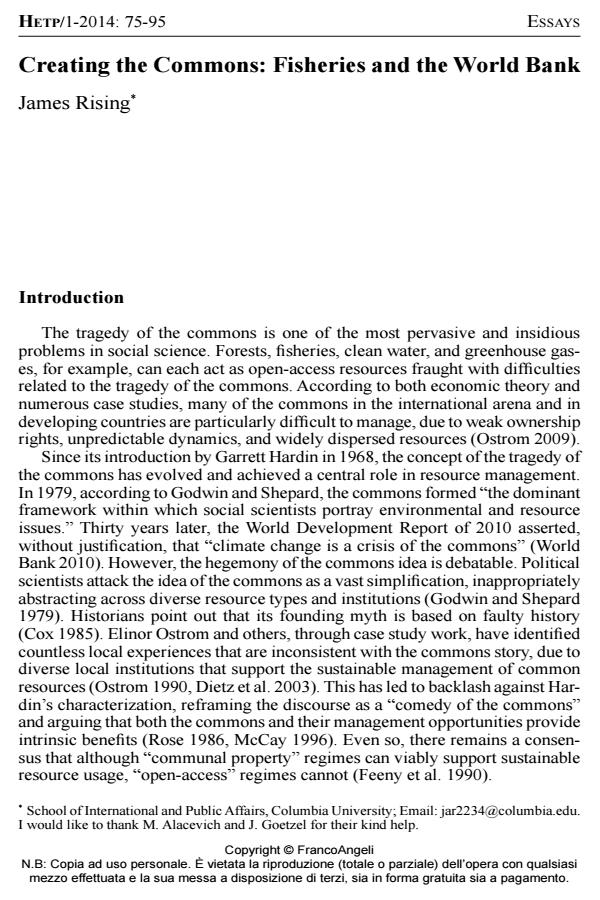Creating the Commons: Fisheries and the World Bank
Journal title HISTORY OF ECONOMIC THOUGHT AND POLICY
Author/s James Rising
Publishing Year 2014 Issue 2014/1
Language English Pages 21 P. 75-95 File size 2083 KB
DOI 10.3280/SPE2014-001003
DOI is like a bar code for intellectual property: to have more infomation
click here
Below, you can see the article first page
If you want to buy this article in PDF format, you can do it, following the instructions to buy download credits

FrancoAngeli is member of Publishers International Linking Association, Inc (PILA), a not-for-profit association which run the CrossRef service enabling links to and from online scholarly content.
World Bank fishery-development project reports offer a window into the intellectual history of the tragedy of the commons. This article focuses on the evolution of management priorities and the role of access restrictions between the first World Bank fishery project in 1963 and key policy briefs in the mid-1990s. Early projects reflect little awareness on the part of the World Bank of open-access problems or over-fishing, but demonstrate that some national agencies were engaged in active management and considered equity to be central concern. By the mid-1990s, a contemporary, economic understanding of commons problems and solutions had emerged, which forced a reinterpretation of the status of previous fishery projects and of the value of various management approaches. This evolution parallels changes in World Bank priorities and informs the dynamic between the World Bank, national institutions, and resource users.
Keywords: Tragedy of the commons, World Bank, fisheries management, equity
Jel codes: O13, Q22
James Rising, Creating the Commons: Fisheries and the World Bank in "HISTORY OF ECONOMIC THOUGHT AND POLICY" 1/2014, pp 75-95, DOI: 10.3280/SPE2014-001003